Where Language and Image Collide
At the heart of Poetic Bipolar Mind is Emotive Fusion Art—a creative philosophy that insists words and images do not merely coexist, but breathe as one. This philosophy finds vivid expression in the pairing of my poem “The Weight of Words” and Dave White’s illustration “Alien Warrior.”
The poem begins with a question: “How do you become a writer?” Its answer is raw and unflinching—through shattering, through surrender, through the painful act of cracking open the self so that the silence within can spill into language. Writing is revealed not as a romanticized pastime but as a battle with ghosts, a war against silence and chaos.
Meanwhile, the illustration “Alien Warrior” does not simply decorate this text; it embodies its conflict. The figure stands armored yet fractured, otherworldly yet human, poised in a tension between defense and vulnerability. Its contours echo the sharp edges of words like “shattering” and “splinters,” while its gaze reflects the poet’s surrender to an act that feels both combative and sacred.
Emotive Fusion at Work
This pairing demonstrates the three pillars of Emotive Fusion Art:
- Mutual Inspiration: The imagery of broken glass and battlefields found in the poem inspired the jagged linework and haunting poise of the Alien Warrior. At the same time, the warrior’s spectral form deepened the poem’s meditation on writing as a confrontation with inner demons.
- Parallel Creation: Neither came first as an afterthought. The poem’s language and the illustration’s atmosphere evolved together, creating a shared emotional current.
- Unified Voice: When viewed together, poem and image refuse to be separated. The words give voice to the warrior’s silence; the warrior offers flesh and armor to the poet’s metaphors.
Why It Matters
When readers encounter “The Weight of Words” alone, they may hear the hum of fractured wounds and the ache of surrender. When they view “Alien Warrior” alone, they may feel the tension of resilience wrapped in vulnerability. But when experienced together, something new emerges:
- A battlefield of language.
- A warrior forged of metaphor.
- An emotional echo that lingers beyond page or canvas.
This is the essence of Emotive Fusion Art: not poetry illustrated, not art captioned, but a singular creation that fuses two mediums into one visceral experience.
“The Weight of Words” and “Alien Warrior” invite us to step into this new genre, to not just read or look, but to feel—to surrender to a multi-sensory narrative where every line and every stroke carries the weight of survival.
Alien Warrior
“Alien Warrior” by Dave White is a dynamic sci-fi illustration that captures the tension of a galactic battlefield. Set on a red, otherworldly terrain, a skeletal extraterrestrial warrior grips a scythe amid a surreal alien landscape, with ships soaring through space behind him. Bursting with color, detail, and cosmic energy, this piece is a bold statement of power, otherness, and resistance.
1 in stock

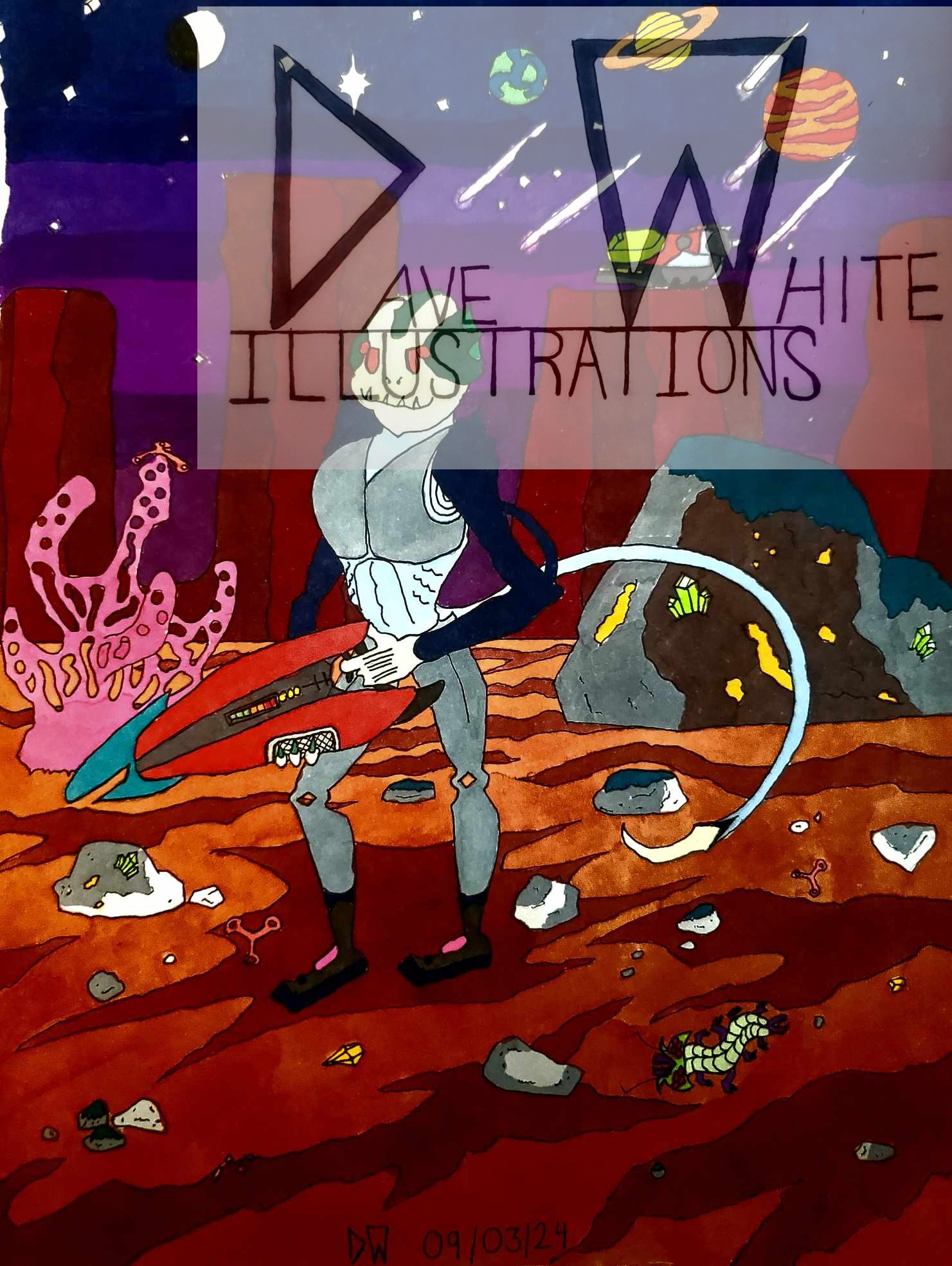
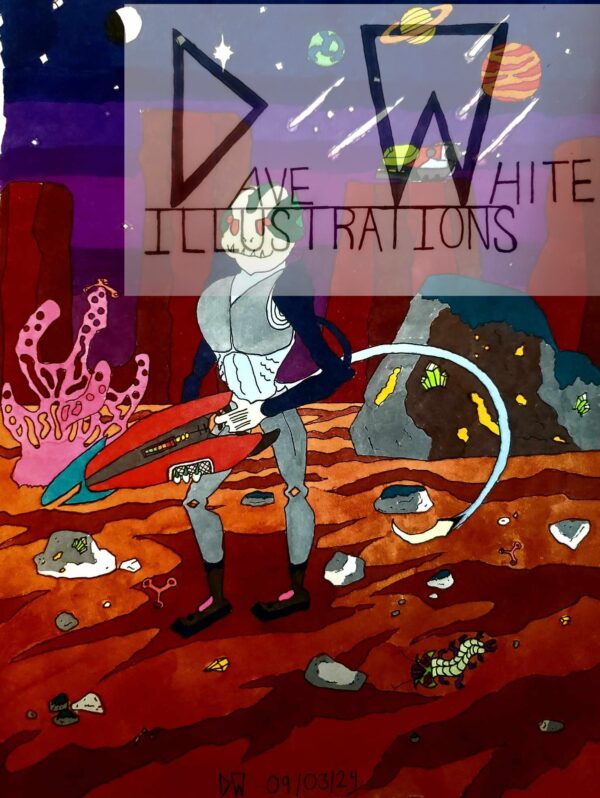
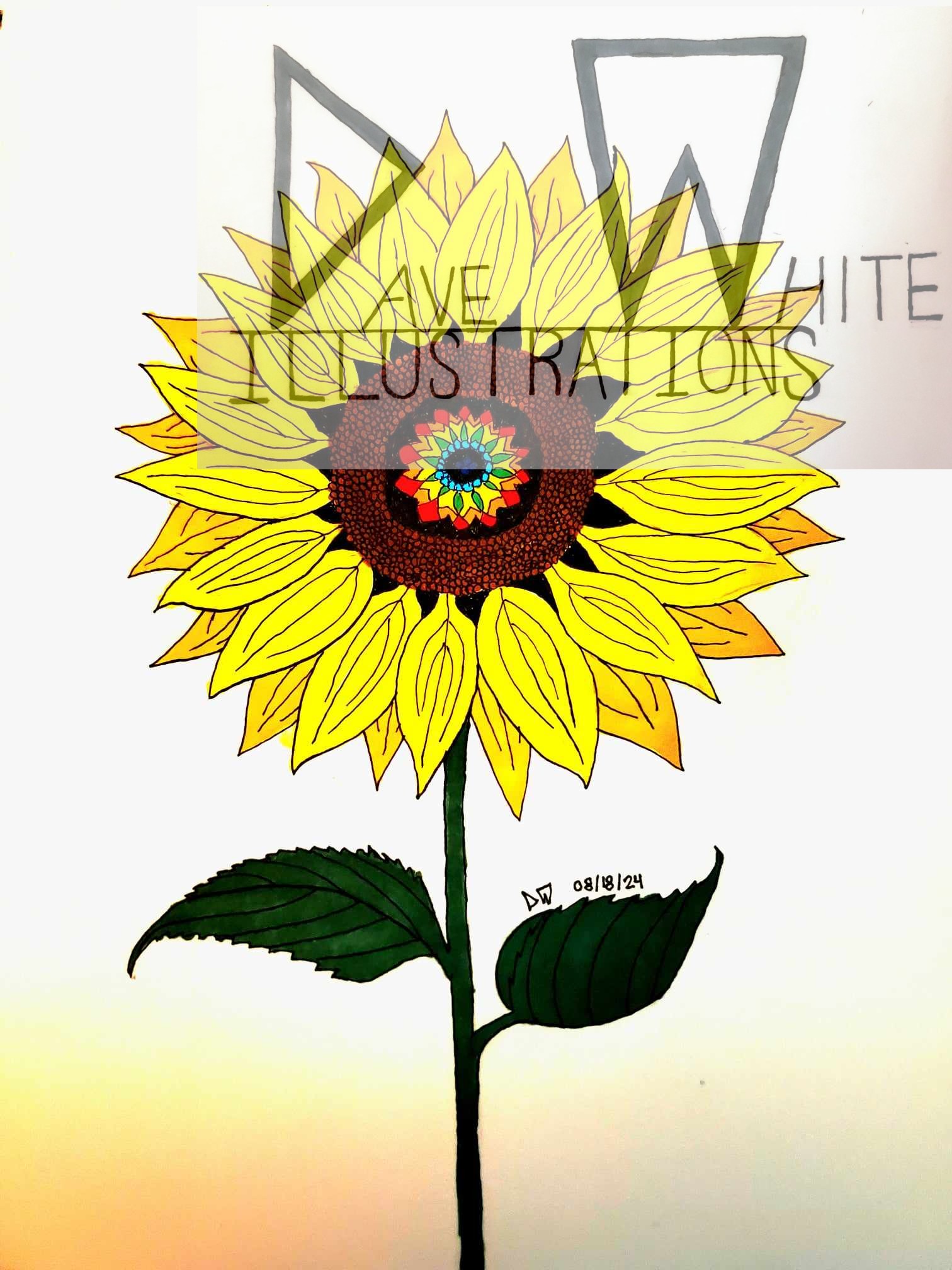
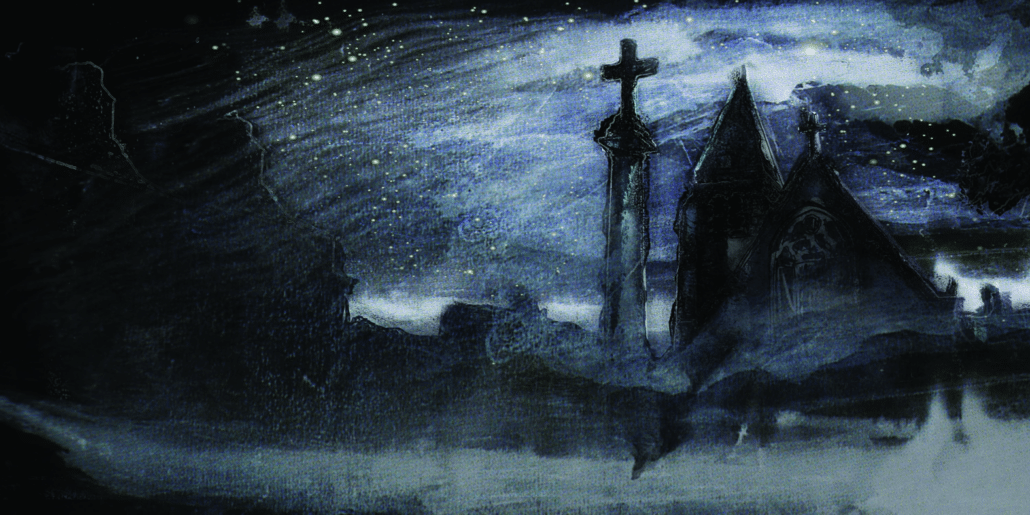
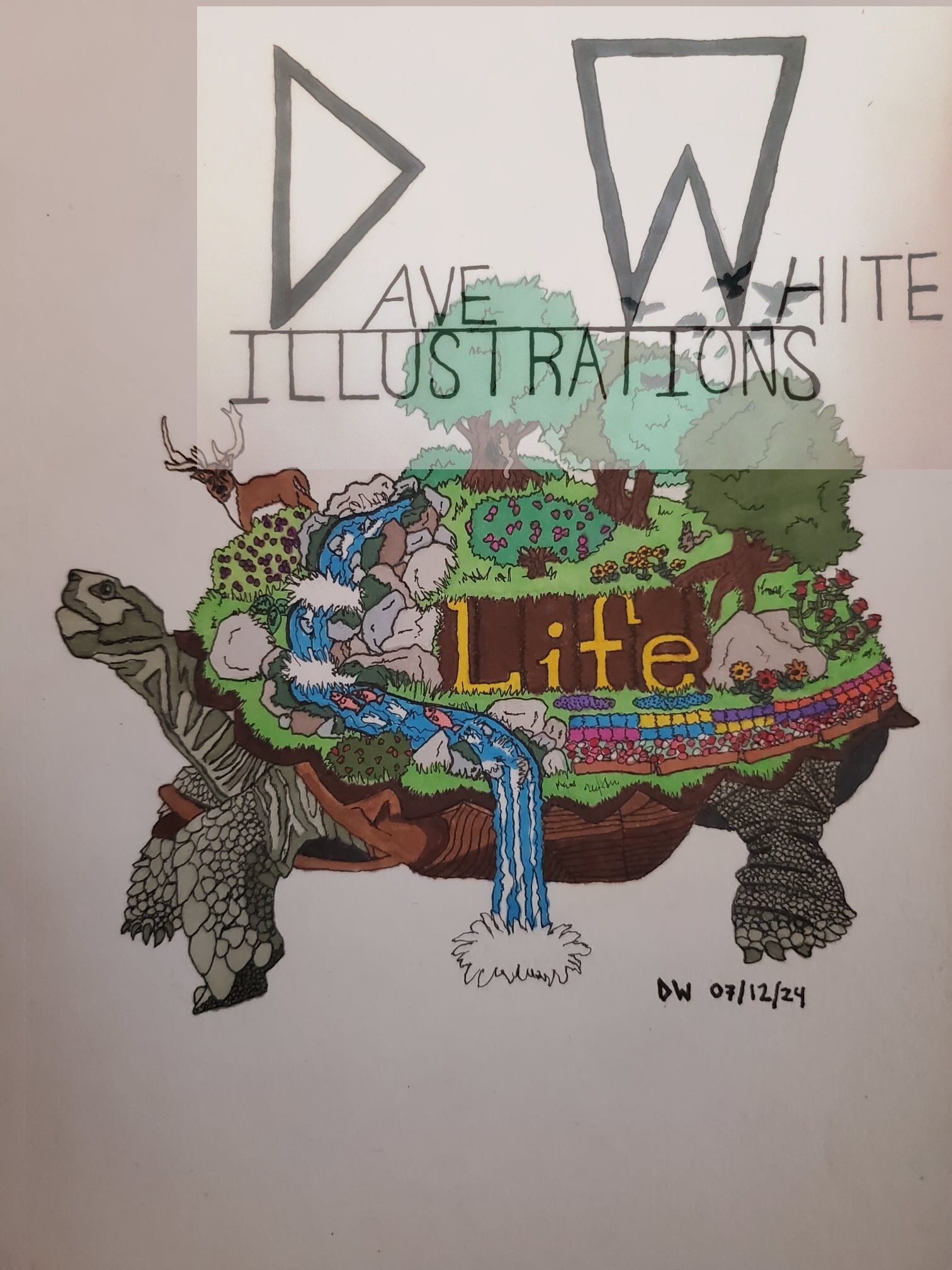
Leave a Reply